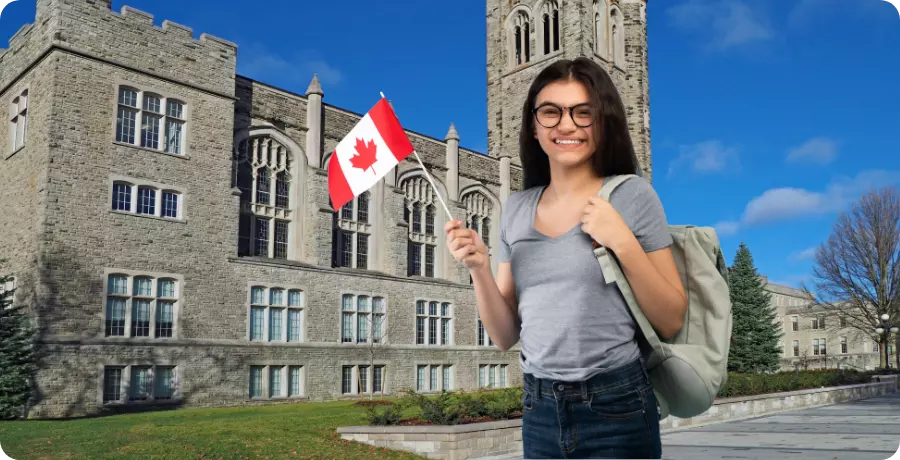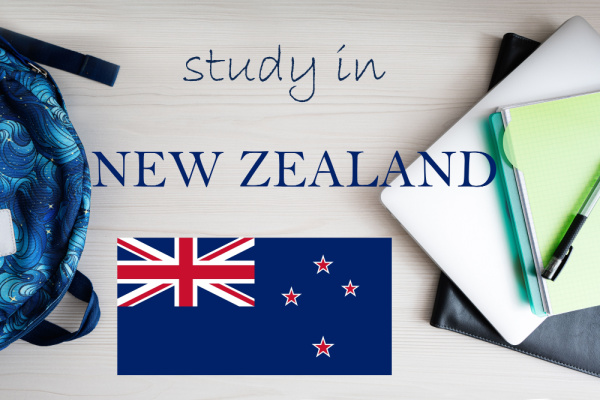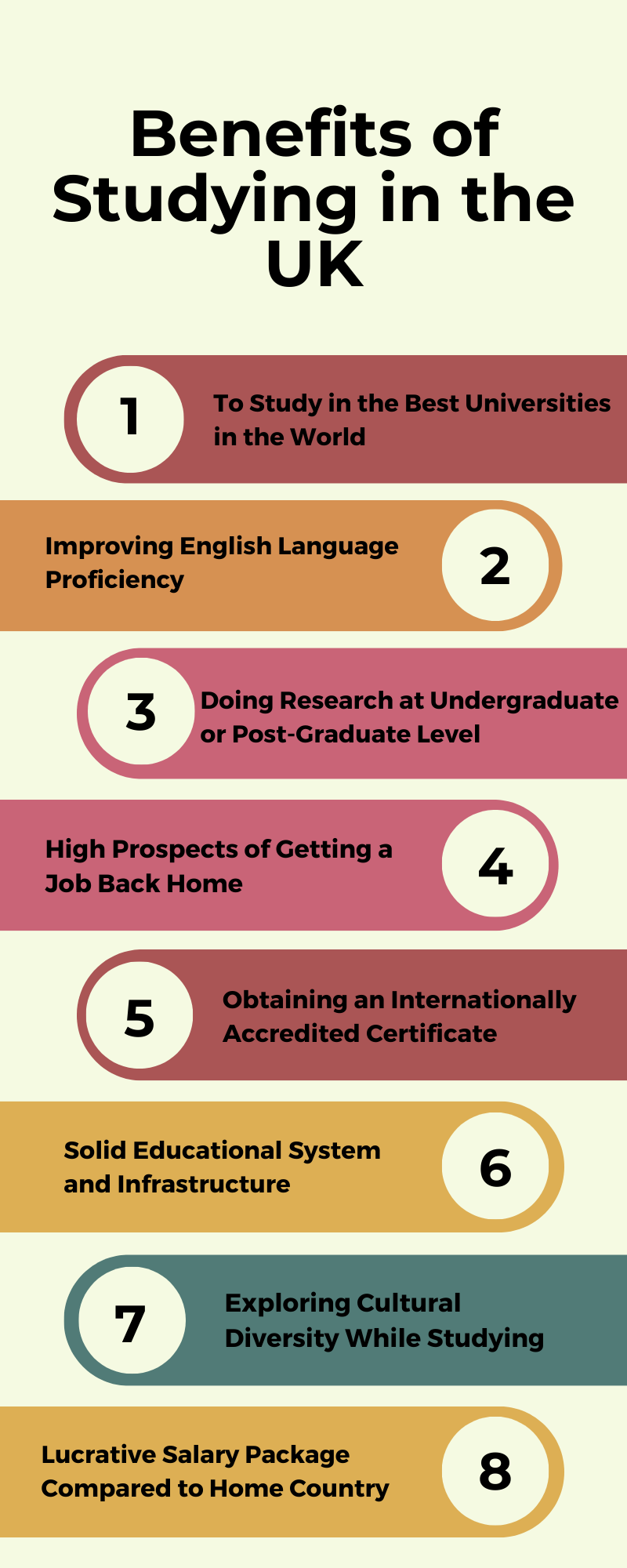Apart from the diverse culture and high standards of living, Canada has been a popular destination for international students for the institutions’ quality education. Canada offers ample opportunities for research and also has affordable options. Students can be ensured of a safe and peaceful life in Canada. The various processes and opportunities for Higher Education in Canada for International Students are discussed in detail in this article.
Universities to Apply in Canada for international students
The universities in Canada are ranked as the best among the universities around the globe. These universities are known for offering a high standard and quality of education to students from various parts of the world. Canada’s education quality is maintained by the legislation of the country’s provinces. The country also gets reviews on ways to improve the quality of education from various external agencies and from the universities and tries to update them on their system. Canadian universities provide a variety of courses, small or big, either in English, French, or bilingual. Canadian Universities are dedicated to providing the best opportunities to students to help them enhance their careers and life. Some of the top universities in Canada are as follows:
|
University
|
City
|
World’s Ranking 2023
|
Canada’s Ranking 2023
|
|
University of Toronto
|
Toronto
|
18
|
1
|
|
University of British Columbia
|
British Columbia
|
40
|
2
|
|
McGill University
|
Quebec
|
46
|
3
|
|
McMaster University
|
Ontario
|
85
|
4
|
|
University of Montreal
|
Quebec
|
111
|
5
|
|
University of Alberta
|
Alberta
|
118
|
6
|
|
University of Ottawa
|
Ontario
|
137
|
7
|
The following are some of the Top Canadian Universities and their world rankings for various subjects:
1. Engineering and Technology
- University of Toronto – 27th rank
- University of British Columbia – 33rd rank
- University of Waterloo- 37th rank
- McGill University -41st rank
- University of Alberta – 93rd rank
2. Data Science
- University of Toronto – 6th rank
- University of British Columbia – 19th rank
3. Life Sciences and Medicine
- University of Toronto – 13th rank
- University of British Columbia – 22nd rank
- McGill University -26th rank
- McMaster University – 48th rank
- University of Alberta– 69th rank
4. Computer Science and Information Systems
- University of Toronto – 12th rank
- University of British Columbia – 21st rank
- University of Waterloo- 22nd rank
- McGill University -34th rank
- University of Montreal – 47th rank
5. Arts and Humanities
- University of Toronto – 15th rank
- University of British Columbia – 23rd rank
- McGill University -36th rank
- University of Montreal – 148th rank
- University of Alberta– 171st rank
Popular courses in Canada for graduation, post-grad, and post-degree
Canadian Universities are popular for offering world-class education to students from all over the country. They provide excellent undergraduate, postgraduate, and post-degree diploma courses. The following are some of the courses offered in Canada that are in high demand:
- Arts and Design – Graphic Designing, Fashion Designing, Photography, Media, Film, and Visual Arts
- Engineering – Electrical Engineering, Mechanical Engineering, Mining Engineering, Civil Engineering, Electronic and Communication Engineering, IT, Computer Science, Chemical Engineering, and Architectural Engineering.
- Hospitality and Tourism Management – Hospitality, Hotel Administration, Food Administration, and Tourism Management.
- Health – Health Care Technology Management and Nursing
Apart from these courses, there are a lot of courses available at cheaper costs in Canada, like the PG diploma and diploma courses, which are not as valuable as the degrees acquired from universities. Canadian universities also offer few courses that are much more affordable than the universities in other English-speaking countries. Medical and Management courses in Canada cost quite more than the other courses. Regarding tuition fees, Canadian universities offer excellent education at affordable costs.
Know about eligibility criteria and requirements to apply to Canadian universities
The students must fulfill certain eligibility criteria to apply to Canadian universities. The following are the eligibility for various courses in Canada:
-
Undergraduate Courses
- 70% in 12th standard
- Should study maths in 12th
Post Graduate Courses
- Full-time work experience for at least 3 years
- An overall score of 6.5 and above in IELTS and other English proficiency tests
- A GMAT score of 580 and above
- Minimum 70% in Undergraduate degree
- Statement of Purpose
- Recommendation Letter
MBA Programs
- A relevant bachelor's degree from a recognized university.
- 3-5 years of work experience in the field
- The required IELTS scores
- A GMAT score above 500 is mandatory
Requirements to apply for Canadian Universities: -
The admission requirements vary from one university to the other and also for the different course types. However, some of the basic requirements are as follows:
- Duly filled application form with acknowledgment
- Mark sheets of 12th, UG and PG
- Test scores of course-specific tests
- Letter of Recommendation (from teachers or professors and Managers and co-workers if working)
- Test scores of the required English Proficiency tests
- A properly scanned copy of the passport
- Canadian Student Visa
- Required number of photographs
- An updated resume or CV
- A supporting document for financial availability
- Experience letter, if any
Academic exams required to apply for higher education in Canada
The entrance examinations in Canada are divided into two categories: the Language tests and the academic Tests. While the language tests examine the candidate’s proficiency in the English language, the academic test examines the candidate’s knowledge of various subjects.
Language Tests:
The following tests fall into the category of language tests:
- IELTS – The International English Language Testing System or IELTS tests students on the four key skills of the English language: Listening, Speaking, Reading, and Writing. The candidate must score an overall band score of 6.5 and a band score of 6 for each section to be eligible for Canadian Universities.
- TOEFL: Like the IELTS, TOEFL exams also test the candidates for their skills in Listening, Speaking, Reading, and Writing in English. A candidate must score 110 and above to get admitted into Tier 1 Canadian Universities and a score of 80 and above for Tier 2 universities.
- PTE – The Pearson’s Test of English is for non-English speakers, which also tests for the four basic skills of LSRW. It usually tests two skills together. A candidate must acquire a 55 and above to join Engineering colleges in Canada and 55 – 70 scores to get admitted into MBA and MS courses.
Academic Tests
Academic tests in Canada include some of the following tests:
- GRE- the Graduate Record Examination tests are for students applying to various graduate courses in Canada. It is of two types, namely the GRE General, which tests the candidate’s critical, verbal, and quantitative reasoning, analytical and critical skills, and the GRE Subject Test examines the candidate’s knowledge in various subjects like Math, Physics, Chemistry, and Psychology
- GMAT – GMAT is for admissions into business schools and management courses like the MBA. This test evaluates analytical writing, verbal, quantitative, and reading skills in English. A student should score above 550 on GMAT to be admitted into Canadian Universities.
Application and admission process to Canadian Universities for international students
A student must be well aware of the different intakes and deadlines followed by the universities in Canada for admissions. It must also be noted that Canadian universities offer admissions to various courses in various intakes. The following are the details of the intakes:
- Primary Intake – The Fall Intake is the primary intake between September to December or Early January. The application submission for this intake happens between the months of November and April.
- Secondary Intake - The winter Intake is the secondary intake between January and May. The application submission for this intake happens between the months of March and August.
- Spring or Summer Intake – The Spring or summer intake happens between the months of May and August. The application submission for this intake happens between the months of July and December.
An international student can follow the below-mentioned steps while applying to Canadian Universities:
- The first step is to determine the course that the candidate wishes to pursue and then shortlist universities in Canada that offer these courses. A lot of research has to be done for this, and the candidate should also plan on the expenses and career opportunities before selecting the same.
- The next step is to review the eligibility and requirements for admission into these universities and the course chosen.
- The candidate must gather all the required documents, including the SOP, LOR, essays, bank statement, and updated resume or CV.
- It is mandatory to produce scores of various language tests and academic tests like IELTS, TOEFL, PTE, GRE, SAT, and GMAT to be eligible for admission.
- The important step is calculating the finances required for travel, stay, and food. The candidate has to arrange for loans and scholarships to help them for the same.
- Once finances are arranged, the candidate can submit the application form after filling it out properly and attaching all the required documents and requirements
- After the application form is submitted, the universities will take some time to process the application and then give their Confirmation. Once the student receives this confirmation, they must accept the offer and follow the instructions in the letter.
- The next step is the fee payment before the given deadline and arrangement for accommodation close to the University selected
- After all these steps, the final step is the Visa application and processing.
Canadian student visa application: Eligibility criteria, process, and more
The entire visa processing for Canadian Visa is discussed below:
Eligibility Requirements: -
- The candidate should enroll at a DLI
- The candidate has to provide proof of financial ability for tuition fees, living, and accommodation expenses for the candidate as well as the family member accompanying them (if any)
- A Proof of no criminal record from the police
- A proper medical certificate from an authentic medical officer
- A proof that the candidate will leave the country after studies.
- The candidate must be fully vaccinated.
![Study Abroad Opportunities In Canada For International Students]()
Application Process: -
The candidate can apply for a Canadian study visa online and on paper. The following are the steps in the application process:
- Online Application: The candidate should have a clear scanned copy of the required documents to upload while completing the application. However, the candidate has to visit the visa application center to scan their fingerprints. The candidate should also visit the VFS offices to produce a valid passport and the fee payment confirmation documents.
- Offline Application: After carefully reading the instructions, the candidate should download and complete the application form. The candidate should also attach the VFS consent form along with the application form
- The next step is to pay the fee. The candidate can visit the nearest VFS office and pay the same. It is to be noted that the processing fee cannot be refunded.
- Once the fee is paid, the candidate should submit the proper documents and the application form at the VFS office.
- Finally, the biometrics of the candidate will be taken at the Visa Application Center, where the candidate has to pay a biometric fee of CAD 85
Once the procedure is done, the candidate has to wait till the visa is processed and keep checking on updates.
Job opportunities for International students in Canada post-degree
Canada is a country that provides ample opportunities for job seekers. The pay scale is competitive, and many candidates migrate to Canada for work and to set up a career. Though Canada is open to employment in various fields, some of the highest-paying jobs are as follows:
- Full stack Developer - $75000 - $130000 annually
- Human Resource Manager - $80000- $110000 annually
- Cloud Architects - $12000 onwards annually
- Financial Analyst - $80000 - $120000 annually
- Data Scientists - $85000 onwards annually
- Production Supervisor - $65000- $100000 annually
- Millwright - $50000 - $95000 annually
- Surgeon - $325000 onwards annually
- Lawyer - $100000 onwards annually
- Cardiologist - $300000 onwards annually






.jpg)






